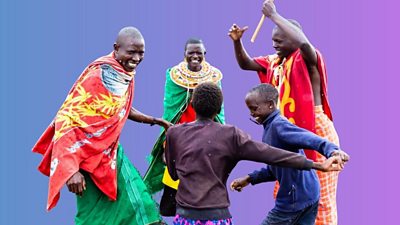The below information is intended to support teams working with children outside of the UK. We also have our International Safeguarding Policy and International Safeguarding Guidance which can support teams in preparation.
International Safeguarding Checklist
Our international safeguarding checklist can be found here. It contains our expectations and guidance for working with children and vulnerable adults outside of the UK.
International Safeguarding Point of Contact (iSPOC)
Every �鶹�� international bureau or office has an iSPOC - in most cases, this will be the bureau/office manager. Their role is to advise and support staff working internationally on matters relating to working with children and/or vulnerable adults, and includes:
- Advice on basic queries regarding working with children, including the �鶹�� International Safeguarding Policy
- Signpost teams to �鶹�� Safeguarding resources and guidance
- Be responsible for the Bureau Safeguarding Assessment and Reference doc
- Ensure that safeguarding and child protection concerns are directed to the �鶹�� Safeguarding Team
International Frameworks
The �鶹�� will discharge its legal and moral obligations for safeguarding internationally by operating within identified boundaries, as outlined in the following:
• The Ofcom Broadcasting Code
• The United Nations Convention on the Rights of the Child
• UN Convention on the Rights of Persons with Disabilities
�鶹�� Internal Guidance:
• Safeguarding Code of Conduct: The �鶹�� has a strict safeguarding ‘Code of Conduct’ to which all adults working with children and young people, in whatever capacity, must adhere to. The Code of Conduct is not meant to inhibit normal interactions with children, but rather to support respectful relationships between �鶹�� staff, freelancers, third parties and children.
• �鶹�� International Safeguarding Guidance
• �鶹�� Adults with Care and Support Needs Guidance
• �鶹�� Editorial Guidelines: Section 5 (Harm and Offence)
• �鶹�� Editorial Guidelines: Section 9 (Children and Young People as Contributors)
Training
For those staff who work in �鶹�� bureaux or offices, the �鶹�� Safeguarding Team deliver a bespoke training package (which is adapted from our UK 'Safeguarding - Advanced' training and builds on basic safeguarding principles and practices) to meet international team needs:
- Mandatory for all iSPOCs
- Recommended for employees working directly with children or that will be working on a project, production or event where children and/or vulnerable adults are present and/or contributing
- Usually delivered via Zoom/Teams - please contact safeguarding@bbc.co.uk for more information*
- Must be refreshed every three years
Safer Recruitment
You must adhere to ‘Safer Recruitment’ practices defined by HR (or refer to your own internal policies if you are a third party), to ensure employees are suitable to work with children and adults with care and support needs. Anyone whose role requires a criminal record check must work under restricted duties until their certificate is approved.
Criminal record checks or equivalent police clearance certificates are widely recognised as a critical component of international safeguarding for individuals working with children. These checks are designed to ensure that individuals with histories of criminal behaviour, particularly offences against children or other vulnerable groups, are identified. They also enable the �鶹�� to ensure that eligible people (aged 16 or over), have nothing on their criminal record that makes them unsuitable to work or volunteer in roles that have contact with children.
Where a criminal records check process or equivalent exists in the location, the allocated International HR business partner will advise, and local legislation must be followed. Where the role involves a consistent and frequent level of contact with children, a criminal record check (or equivalent) must be made locally. All background checks must be completed before working with children.
Supervision
Children must be supervised at all times by an appropriate adult. No staff, freelancers, or contractors should ever be alone with a child. All activities should be organised so there is a parent/guardian/chaperone present at all times.
An appropriate adult is required to supervise the child whilst you are working with them. This could include a parent/legal guardian or another family member (if agreed by parent/legal guardian), or a professional known to the child (e.g., teacher, charity worker, youth worker, etc).
If you are engaging a child from the UK to perform abroad, then you will need to engage a professional licensed chaperone. Parents are allowed to accompany the child if the child is travelling abroad, but you must also engage a professional licensed chaperone to act in loco parentis whilst the child is performing. More information regarding engaging professional chaperones for UK children performing abroad can be found .
Assurance
The �鶹�� Safeguarding Team has a robust assurance and vetting framework in place that allows specialists to assess compliance to each of the identified safeguarding requirement areas. The �鶹�� Safeguarding Team may assure regional bureaus, world service language teams, and international productions.
Assurance may look at the following areas:
1. A safeguarding policy, with an identified owner that is regularly updated to reflect legislative changes/industry best practice trends
2. A Code of Conduct or document that outlines suitable behavioural best practice
3. A named individual who will act as the ‘SPOC’ (Safeguarding Point of Contact)
4. Suitable safer recruitment processes, including criminal records checks and the management of positive content
5. Completion of appropriate training in basic safeguarding principles, plus at advanced level for identified roles
6. A robust risk assessment that reflects actions taken to minimise risks to children
7. Appropriate Supervision of children
8. Suitable facilities for children
9. Identified methods for reporting concerns locally, plus a system for recording such concerns
10. Supportive pre/after care advice informing children, plus their parent/carer, of the impact of contributing to �鶹�� output, online concerns, potential risks, and support that is in place for them
